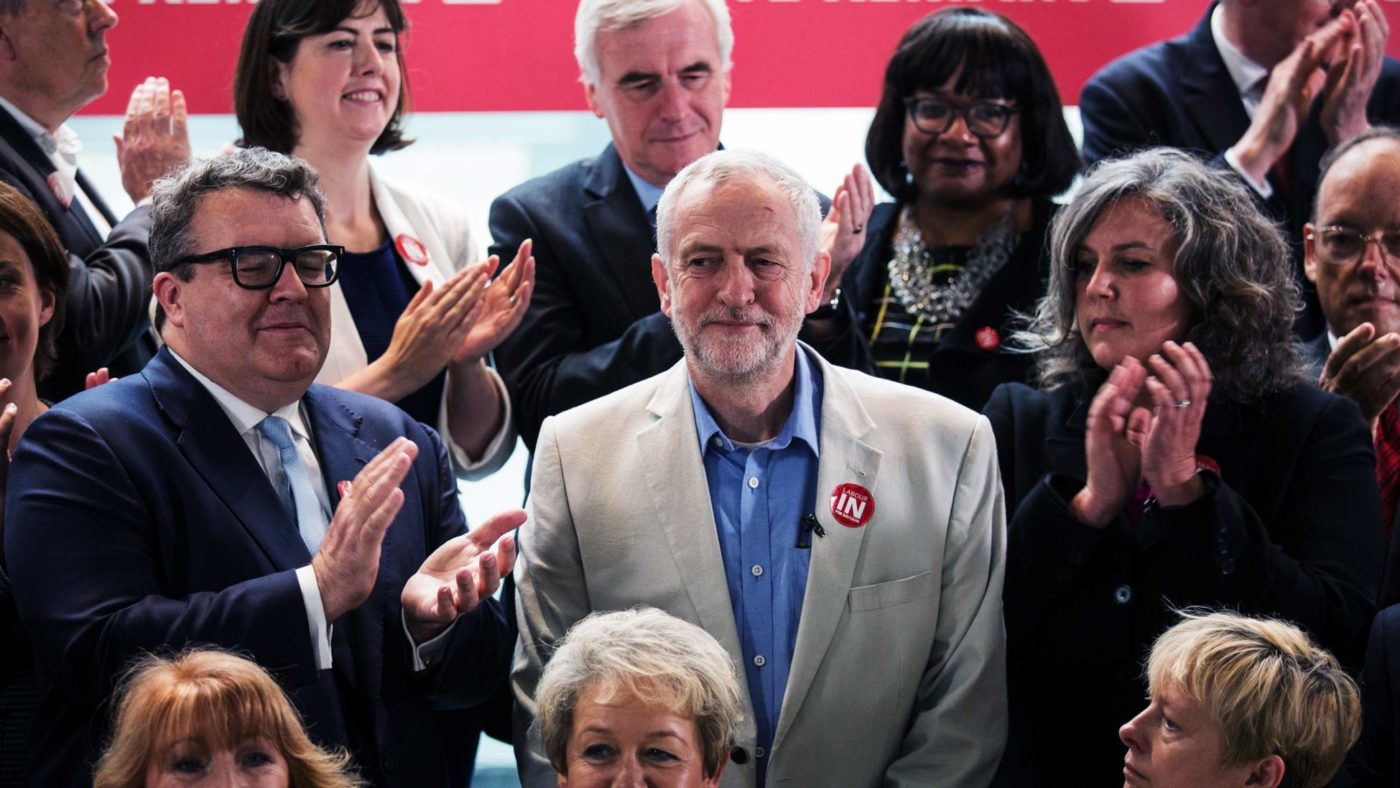The absurd case of Labour MP Rosie Duffield has brought the byzantine world of Labour’s rulebook back into the spotlight.
Getting one’s head round the intricacies of Labour Party rules is a challenge at the best of times, but in order to understand the latest phase of the party’s civil war – and this week it’s about the selection, or deselection, of parliamentary candidates – we should give it a try.
When you’re first selected as a Labour candidate to fight a general election, you’re chosen from a shortlist of candidates drawn up by your local party. Assuming you win the subsequent general election and want to stand for the party at a second one, you have to be re-adopted as a candidate.
The current system is known as a trigger ballot, and it involves apportioning one single vote to every branch that is affiliated to the local constituency party. To be clear, this means that a Labour party branch with any number of members living within it will have just one vote (and there can be any number of such branches depending on the size of the constituency).
But a trade union branch will also have a single vote, and unions have been known, at the flick of an official’s pen, to affiliate dozens of their own branches if that official wants either to support or oppose a particular MP.
So the trigger vote happens, and so long as the sitting MP gets more than half of the total number of votes cast, they are assumed to be re-selected. This is the case even if their local members – the ones expected to come out and campaign for the candidate in the run-up to the next election – overwhelmingly opposed the candidate’s automatic re-selection but were outvoted by those pesky trade union branches.
This is the source – and the strength – of the argument being made by Momentum, the radical left foot soldiers loyal to Jeremy Corbyn, in the run-up to Labour’s crucial annual conference in Liverpool this month. Why should any MP who doesn’t enjoy the support of their members be allowed to hang on to a safe seat in Parliament just because they’re best mates with the national organiser of Unite or the GMB?
If Momentum get their way – and they just might – the trigger ballot will be scrapped in favour of open selections in which any aspiring candidate can stand. Any shortlist, Momentum have graciously conceded, would include the sitting MP.
When “mandatory re-selection” raised its head in the early 1980s, leading directly to the defection of a swathe of Labour MPs to the SDP, few of those who chose to remain in Labour were actually removed. This, say some commentators, is a reason not to fear a return to those days.
But there is one crucial difference between then and now: in days of yore, the local General Management Committee (GMC), a body made up of party branch and trade union delegates, had sole responsibility for selecting parliamentary candidates. Further, the trade unions were overwhelmingly antipathetic to the hard left and supportive of the moderate leadership and, therefore, of leadership-supporting MPs.
Now, and for some time, selections are the sole responsibility of local members. Anyone joining the Labour Party today will have the right to cast a vote in the next ballot for their parliamentary candidate, leaving the party more vulnerable than at any point in its history to entryism from the far left.
It is true that most of Labour’s new members, numbering in the hundreds of thousands, are not former (or current) members of the Socialist Workers’ Party, or the Socialist Party (formerly Militant) or the Alliance for Workers’ Liberty, or any of the Trotskyist flora and fauna of the extreme left.
But it is also true that only a fraction of those members will bother to vote in any future selection contest. Local branches can be, and have been, easily dominated by those with the loudest voices and the sharpest elbows, who can control branches – and therefore hustings meetings – by making it unpleasant for ordinary members to attend. Those of us with the scars of internecine warfare with Militant in the 1980s will be familiar with the scenario.
All of which brings us to Rosie Duffield, from all accounts an effective and hard-working MP who, against all expectations, captured the seat of Canterbury for Labour at last year’s general election and who has been outspoken in her criticism of the party’s anti-Semitism problem since then. Such criticism is verboten in this new model Labour Party, however, and a few unpleasant local activists sought to bring a motion of no confidence against her. The motion was withdrawn after a universal outpouring of support for Duffield.
Nevertheless, the tactics of Momentum and their hard left supporters is crystal clear. There are genuine fears in the higher echelons of the party that a number of Labour MPs will yet defect rather than follow Jeremy Corbyn’s leadership. These fears are well founded. So no-confidence motions are tabled in each suspect MPs’ constituency and, when the MP in question finally resigns the Labour whip, Corbyn’s friendly commentators can devalue their gesture by Tweeting that they “jumped before they were pushed”.
Duffield, as far as anyone is aware, is not yet part of the group expected to resign, and so the eager Corbynistas in Canterbury will no doubt be reprimanded and sent for re-education for their trigger-happy shenanigans.
But if the Momentum rule change is indeed debated and approved by Labour conference, those motions of no confidence will be (rightly) seen as a mere appetizer to the main course: deselection of sitting, unhelpful MPs and their replacement by true believers in the Corbyn agenda. In those circumstances, defection, or at least the resigning of the whip, could become the only way Labour MPs can avoid a very public humiliation.


